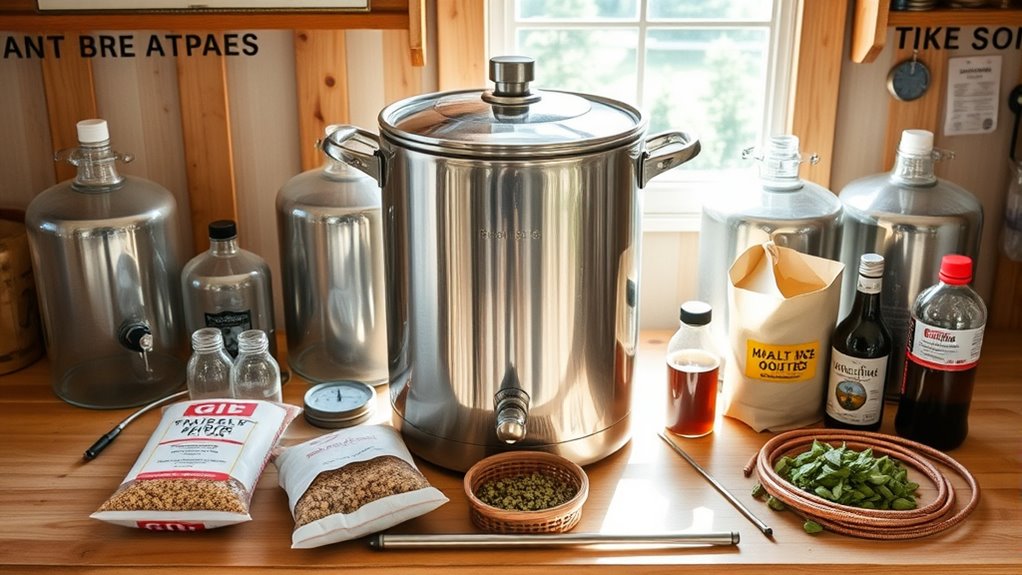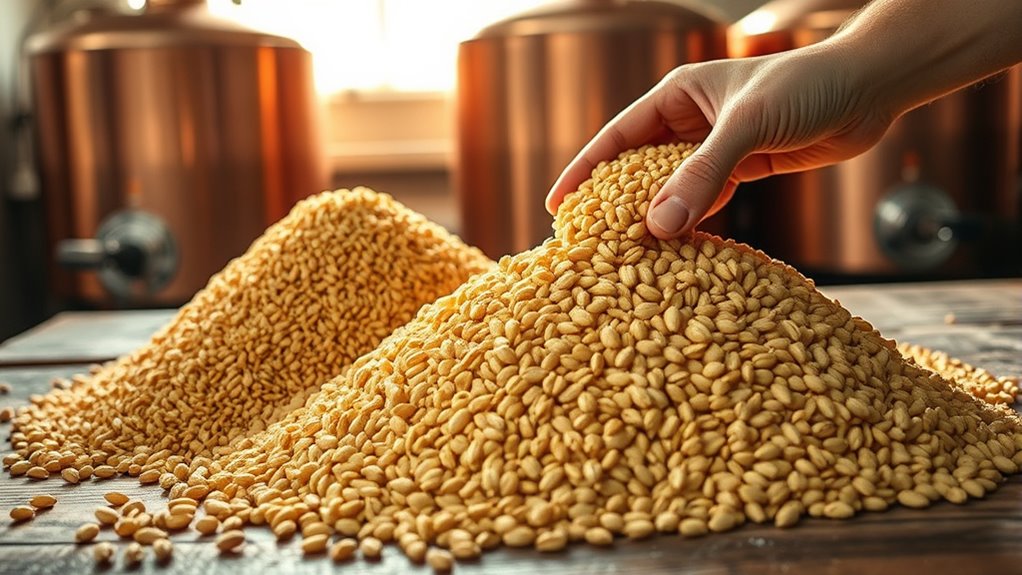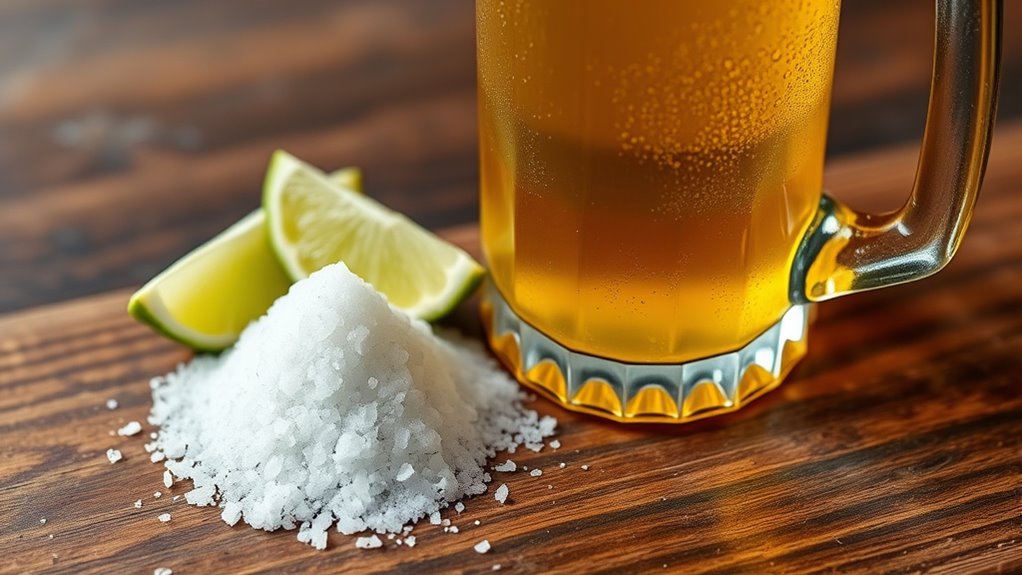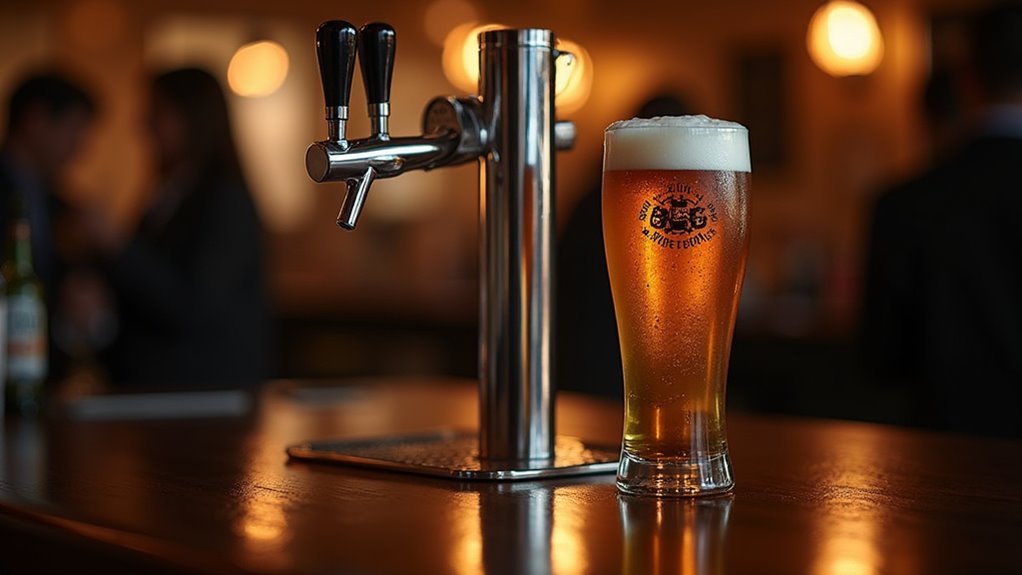Starting homebrewing with essential equipment is vital for ensuring quality and success. High-grade ingredients like malt and hops, along with reliable tools such as digital scales and refractometers, enhance flavor and accuracy. Sanitation is key; effective sanitizers eliminate unwanted bacteria. Control the fermentation temperature with floating thermometers and electric heating pads, as steady conditions lead to better yeast activity. Finally, proper bottling tools, like bottling buckets and cappers, streamline the process. Discover more about enhancing your homebrewing experience.
At a Glance
- High-quality ingredients and equipment significantly enhance the flavor and aroma of your homebrew, leading to a better overall product.
- Accurate measurement tools ensure precise ingredient ratios, which is crucial for achieving consistent and enjoyable brews.
- Maintaining sanitation and hygiene with proper equipment prevents contamination, ensuring your beer is safe and tastes great.
- Temperature control during fermentation is vital for yeast activity, directly impacting the flavor profile and quality of your brew.
- Essential bottling and kegging equipment streamline the process of transferring and storing your finished beer, enhancing convenience and enjoyment.
The Importance of Quality Ingredients and Equipment
When it comes to homebrewing, quality ingredients and equipment are vital to creating a successful batch of beer. High-grade malt and hops greatly enhance flavor and aroma.
Your homebrewing setup should include a stainless steel brew pot for effective heating and fermentation containers like glass carboys to reduce contamination risk.
Accurate measurement tools, such as digital scales and thermometers, are important for maintaining temperature control and achieving precise ingredient ratios.
Additionally, using immersion chillers can streamline the cooling process, ensuring a smoother brewing process overall. Investing in a stainless steel brew pot will elevate your homebrew experience and lead to superior beer quality.
Essential Tools for Accurate Measurements
Accurate measurements play a pivotal role in homebrewing, as they directly influence the consistency and quality of your beer.
Accurate measurements are crucial in homebrewing, directly impacting the quality and consistency of your beer.
To achieve precision, consider integrating these essential tools into your homebrewing equipment:
- Digital Scale: A scale with at least a 10-pound capacity, plus a smaller handheld one for precise measurements (± 0.1 g).
- Graduated Cylinders: Various sizes help with hydrometer readings and measuring chemicals, ensuring correct ingredient ratios.
- Refractometers: These devices measure sugar content efficiently, enhancing your brewing experience. Utilizing the best refractometer products available can significantly improve your brewing accuracy.
Maintaining Sanitation and Hygiene
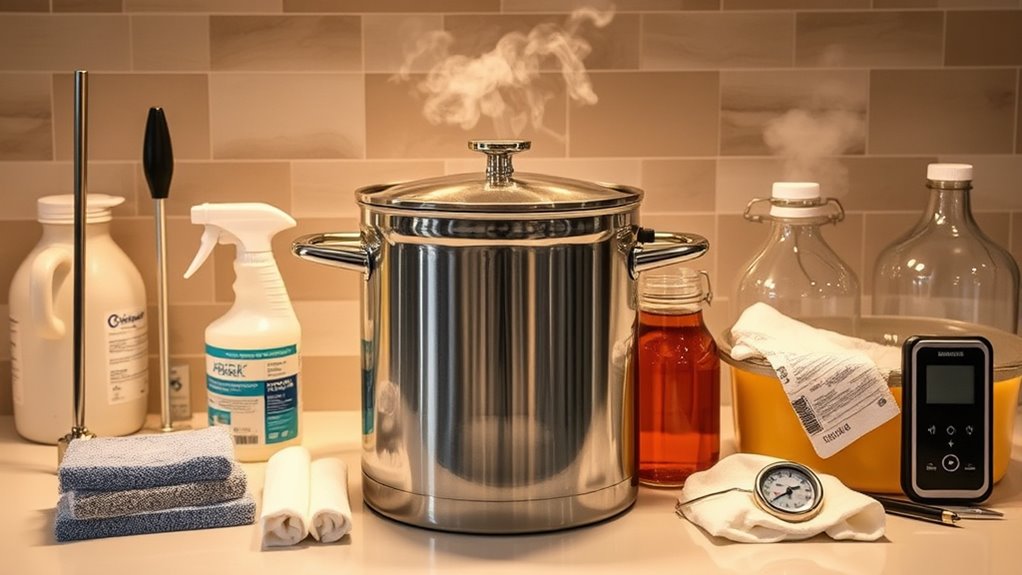
Maintaining proper sanitation and hygiene is essential for successful homebrewing, as it directly impacts the quality and flavor of your beer.
To begin, always clean and sanitize your equipment before use, especially fermenters and bottles. Use effective sanitizers like Star San or iodophor, as they eliminate 99.9% of bacteria and wild yeast, preventing contamination.
Ascertain all surfaces that contact the wort or beer, including utensils and tools, are sanitized. Regularly inspect and clean your brewing equipment to enhance its lifespan. Additionally, ensuring vigorous fermentation by pitching fresh, healthy yeast can significantly minimize contamination risks.
Finally, keep a detailed log of your sanitization practices to maintain consistency and troubleshoot future issues.
Temperature Control for Successful Fermentation
Temperature control plays an essential role in successful fermentation, as it greatly influences yeast activity and the overall flavor profile of your beer.
Temperature control is crucial for fermentation success, significantly affecting yeast behavior and your beer’s flavor profile.
To achieve ideal fermentation temperatures, consider these tools and techniques:
- Use floating thermometers for accurate temperature readings.
- Maintain a consistent mash temperature to enhance sugar extraction.
- Incorporate electric heating pads to stabilize fermentation conditions.
Additionally, maintaining a steady temperature during fermentation is crucial to avoid off-flavors and yeast stress, ensuring the best results in your brewing process.
Bottling and Kegging Essentials for Homebrewers
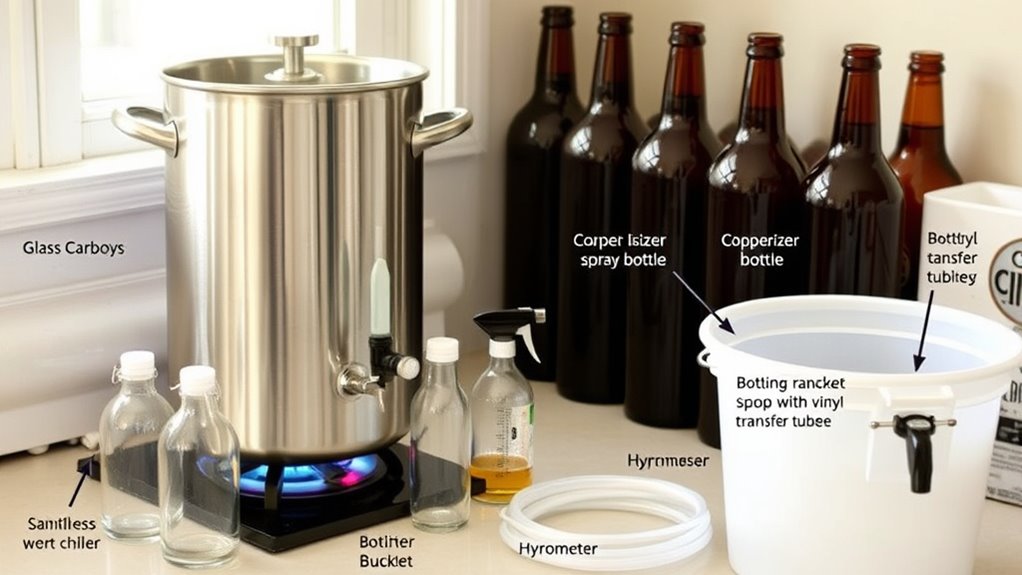
Bottling and kegging are essential steps in the homebrewing process, as they determine how your finished beer is packaged and served.
To streamline bottling, use a bottling bucket, auto-siphon, and bottle filler for mess-free transfers. Don’t forget priming sugar for carbonation; this sugar fuels yeast to produce CO2 in sealed bottles.
For packaging, many homebrewers choose sturdy swing-top bottles, which make sealing and storage easier. Alternatively, kegging systems, including a keg, CO2 tank, and regulator, provide convenient access to your brew. Investing in the best bottle cappers can also enhance your bottling process by ensuring a secure seal on every bottle.
Remember to prioritize cleaning and sanitizing, using a bottle brush to guarantee everything is spotless before use.
